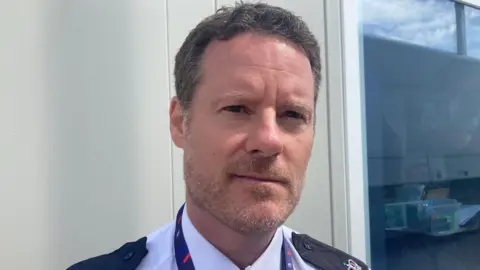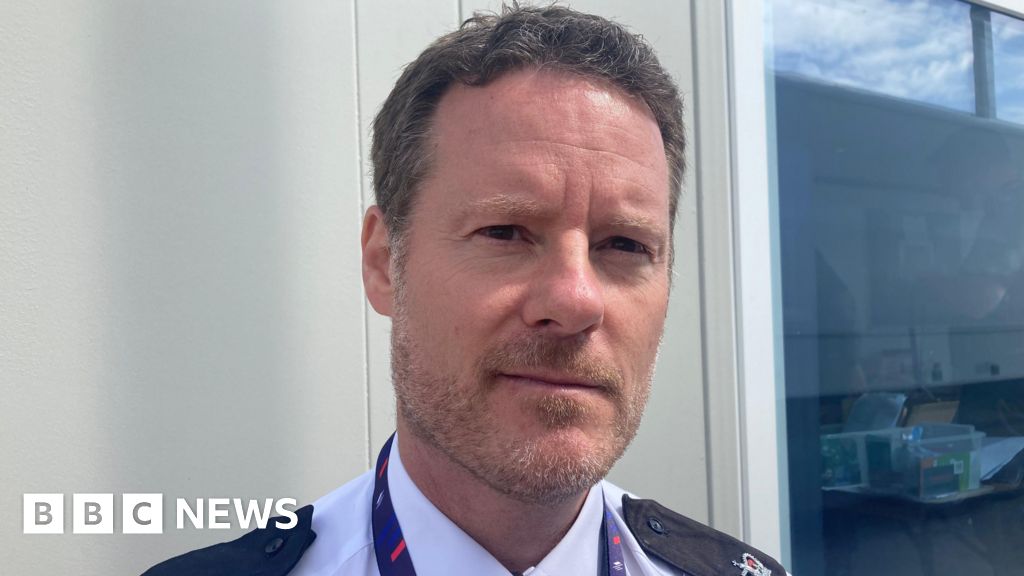By Oliver Copono, Neve Gordon-Farleigh, BBC News, Northamptonshire
 Tom Percival/BBC
Tom Percival/BBCFacial recognition will be used by a police force at the British Grand Prix for a second year.
Northamptonshire Police will use the technology to help prevent criminal activity at the event, which is expected to host about 480,000 people on 4-7 July.
The software was first used by Northamptonshire Police at the Silverstone race in 2023.
Det Supt Richard Tompkins said: “Each year throws up its own challenges so we can never afford to become complacent.”
The technology works by using a camera to scan faces to match biometrics against those held on a watch list.
Signs and QR codes will be displayed to “clearly” mark where the live facial recognition is being used.
 Getty images
Getty imagesMr Tompkins said he did not want criminals attending the event.
“If you are wanted in Northamptonshire… in surrounding counties, or indeed if we have information that you may be coming to commit crime as part of an organised gang, we will load your image up.”
However, if someone is identified using the technology, manual checks, including fingerprints, will also take place which is why Mr Tompkins said there are “slim” possibilities of people being wrongly identified.
Previous concerns
In 2020, court of appeal judges found a trial project carried out by South Wales Police to scan thousands of faces to be unlawful.
It was found that there had been no clear guidance on where the technology could be used and who could be put on a watch list, and that a data protection impact assessment was deficient.
They said the force did not take reasonable steps to find out if the technology had a racial or gender bias.
Civil rights group Liberty claimed the facial recognition technology would “always be used disproportionately against communities of colour”.
Mr Tompkins said if it keeps people safe then it is “something worth doing”.
He said: “I liken this to CCTV in public towns where there was understandingly some concerns to the public a number of years ago.
“It’s the same thing here, I absolutely get the concerns, we don’t retain the data… it comes back to what is the primary aim of the operation. It’s to keep the public safe.”


